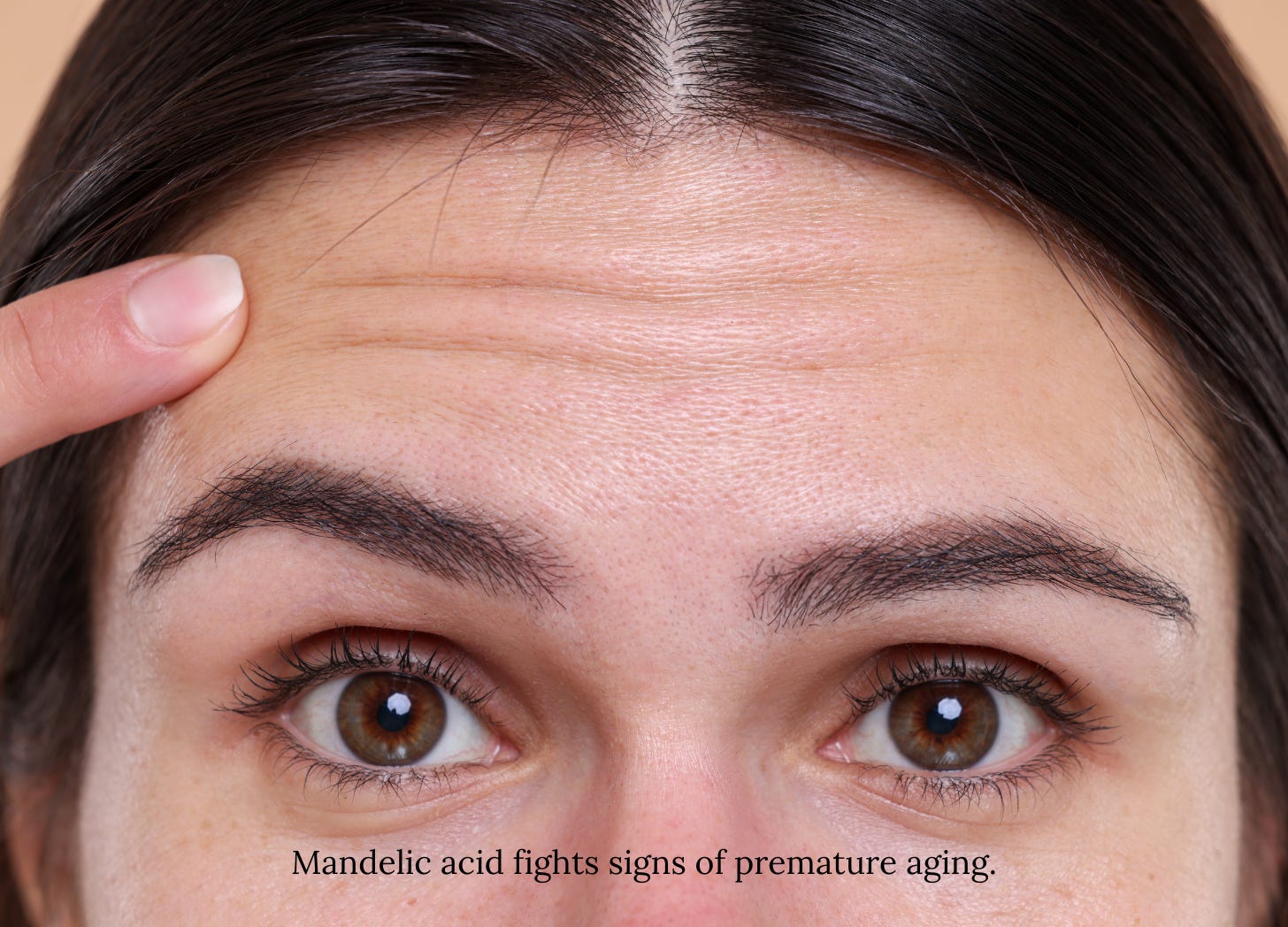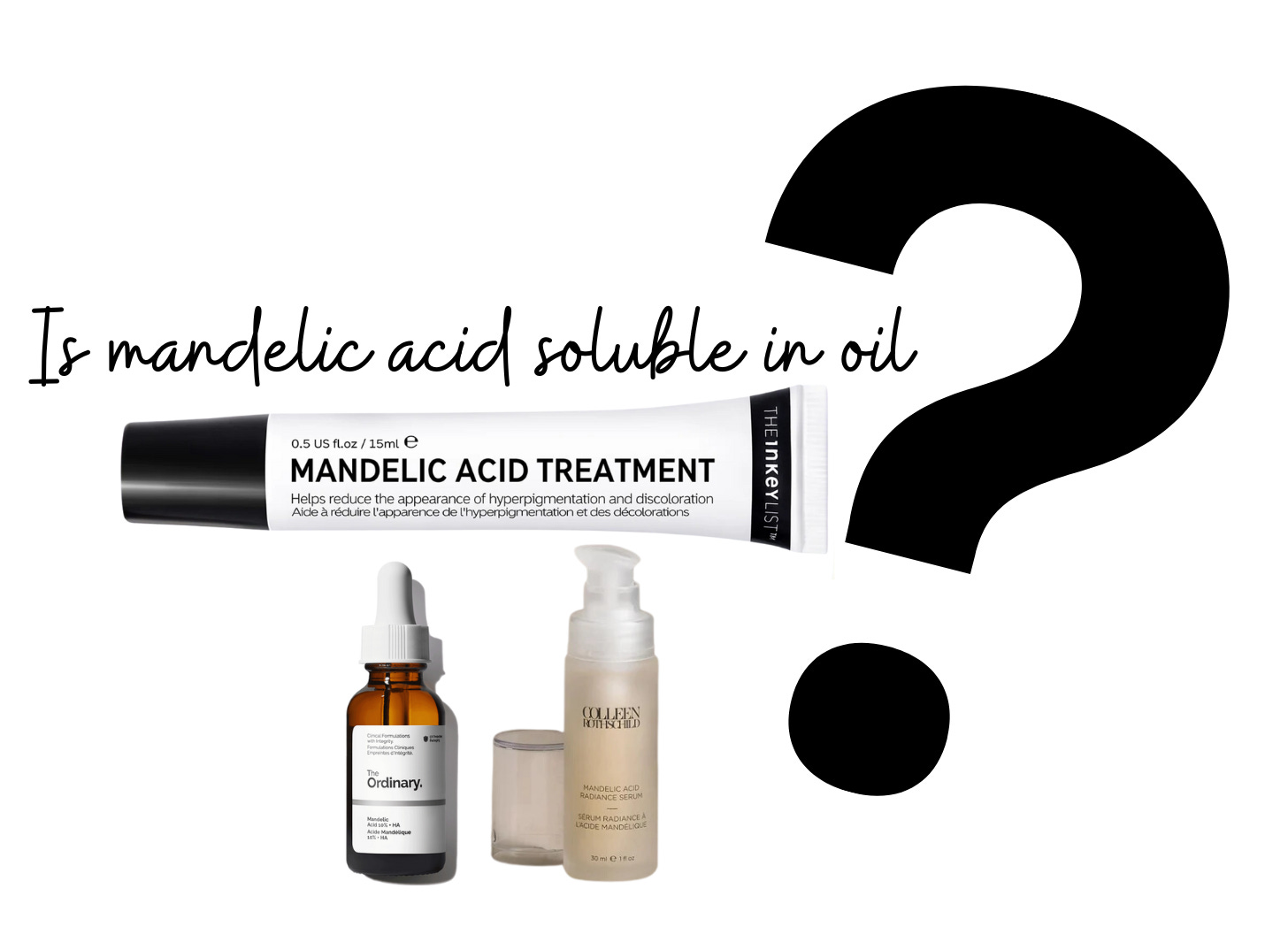Mandelic Acid vs Salicylic Acid: Which one is right for you?
A Guide to Choosing the Right Exfoliating Acid for Your Skin
Salicylic acid and mandelic acid work in different ways, but both can help with acne-prone skin and breakouts.
If your main goal is to fade acne scars rather than treat active acne, mandelic acid is the better choice.
But if you struggle with oily skin, blackheads, or frequent breakouts, salicylic acid (a type of beta hydroxy acid) is the way to go.
Both acids are also gentle enough for sensitive skin.
In this article, we’ll break down everything you need to know about exfoliating acids.
What is mandelic acid?
Derived from bitter almonds, mandelic acid is a chemical exfoliant also known as an alpha hydroxy acid.
It has benefits like:
Brightening dull skin
Reducing dark spots
Fighting acne prone skin
Turning over dead skin cells
Because it has a relatively large molecular size, mandelic is more gentle than other alpha hydroxy acids like glycolic acid or lactic acid.
What is salicylic acid?
Salicylic acid is an exfoliating acid and popular active ingredient commonly found in skincare products.
Also known as a beta hydroxy acid, salicylic acid is the gold standard in treating acne and clogged pores thanks to its fat soluble nature.
Generally, salicylic acid is better suited for people with sensitive skin than other acne treatments like benzoyl peroxide.
You will commonly find salicylic acid products like cleansers and toners to treat textured skin and blackheads.
Check out our article here to learn more about salicylic acid products.
Mandelic vs Salicylic Acid
While mandelic and salicylic are both considered exfoliating acids, there are some important differences.
Strength
Generally, mandelic acid is considered more mild and suitable for people with sensitive skin than salicylic acid.
That being said, because they are structurally different types of acids, it is difficult to compare their strength.
Benefits
Both mandelic and salicylic acid can help with getting rid of skin texture and treating inflammatory acne.
That being said, they are likely not strong enough treatments for treating cystic acne which is better managed under the care of a dermatologist.
Side Effects
Both mandelic and salicylic acid have the potential to cause dry skin, irritation, and redness.
However, you can reduce your chances of developing these side effects by:
Reducing the frequency of use
Using moisturizers and hydrating serums
Overall though, mandelic and salicylic acid tend to be better tolerated than stronger acids like lactic acid and glycolic acid.
Skin Types
Because of their lipophilic nature, both mandelic and salicylic acid are suitable for people with oily skin concerns like acne.
At the same time, mandelic acid can provide some benefit for people with mature skin by fighting signs of premature aging.
Additionally, mandelic acid exhibits antifungal and antibacterial properties and may be more suitable for people with seborrheic dermatitis than salicylic.
Is mandelic acid oil soluble?
Yes, mandelic acid is slightly lipid soluble.
Even though it’s classified as an alpha hydroxy acid (AHA), its structure has some similarities to beta hydroxy acids (BHAs).
Because of this, it works a lot like salicylic acid and can help control excess oil and sebum production.
Can you use mandelic acid with salicylic acid?
No, you should not layer salicylic and mandelic acids on top of each other due to the risk of developing irritation.
If you want to use both acids in your skincare routine, consider using them on different nights.
Just be sure to patch test first and monitor your skin for any signs of irritation.
If you develop side effects like redness or itchiness, reduce the frequency with which you use chemical exfoliants.
Summary: Mandelic Acid vs Salicylic Acid
In conclusion, mandelic acid is a better choice for people dealing with dull and mature skin while salicylic is better for acne prone skin.
That being said, due to the fat soluble nature of mandelic acid, the two offer similar benefits for people with acne.
Overall, both salicylic acid and mandelic acid products can be valuable additions in your skincare routine.
Cheers,


















